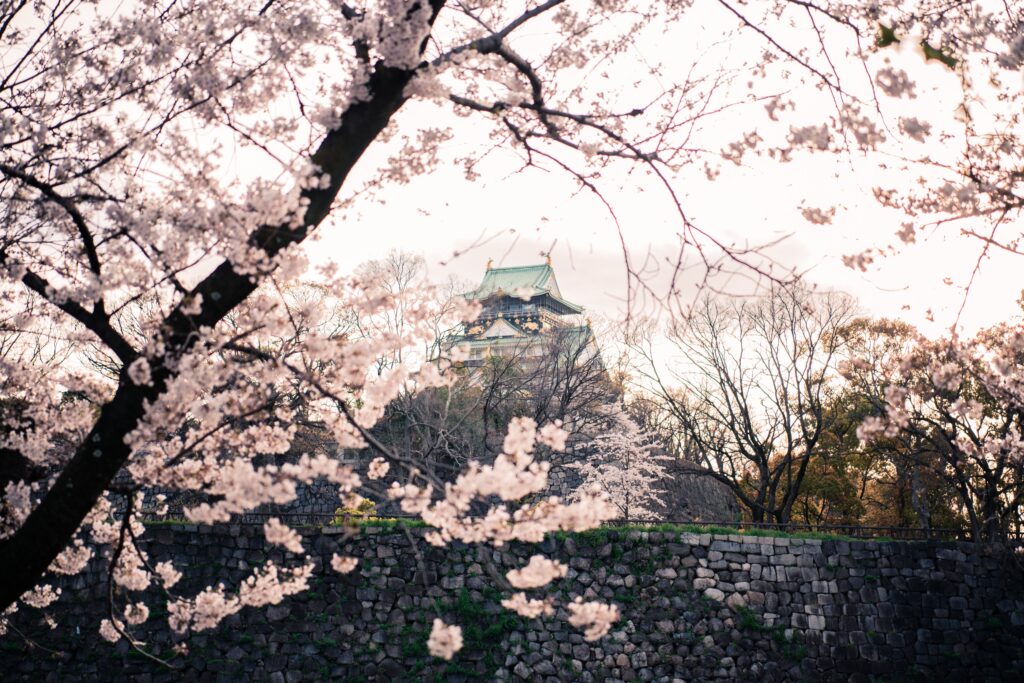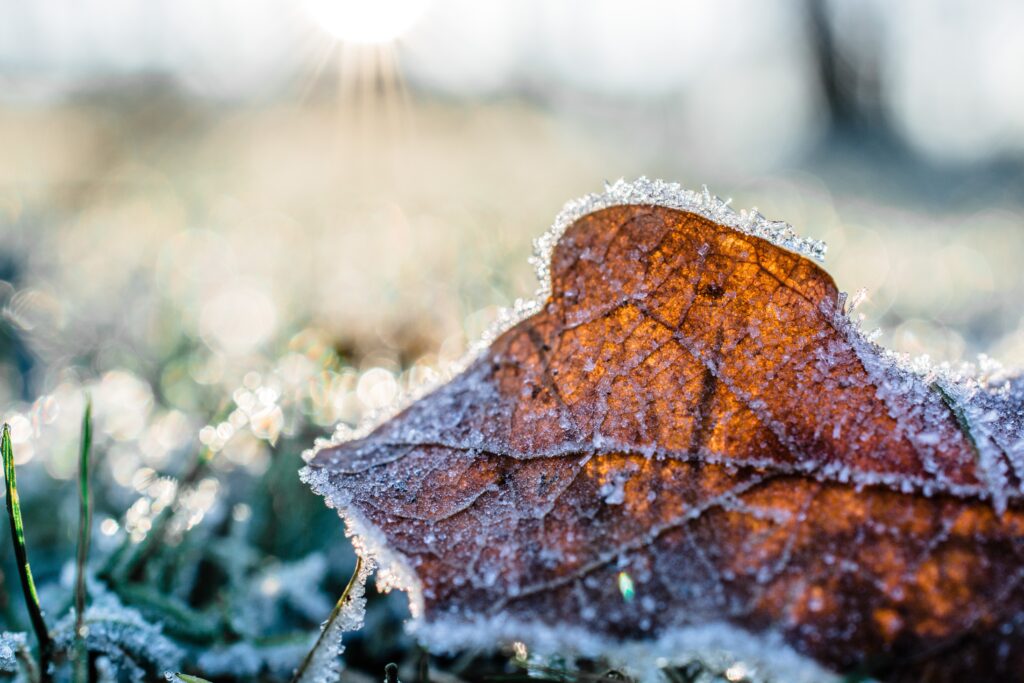
40 Beautiful Japanese Words: What They Mean and How to Say Them
If you’re learning Japanese, you probably don’t need to be told that it’s a beautiful language.
You already know.
Instead, we’d like to introduce you to a collection of beautiful Japanese words that we love, and you’re sure to enjoy too.
Add these beautiful words to your vocabulary or simply keep them close to your heart as a reminder of the beauty of the Japanese language.
Contents
- 1. Kanbina: 甘美な (かんび な)
- 2. Tsundoku: 積ん読 (つんどく)
- 3. Kogarashi: 木枯らし (こがらし)
- 4. Mamori tai: 守りたい (まもりたい)
- 5. Shouganai: しょうがない
- 6. Boketto: ぼけっと
- 7. Fuubutsushi: 風物詩 (ふうぶつし)
- 8. Petorikōru: ペトリコール (ぺとりこーる)
- 9. Fukanōna: 不可能な (ふ かのうな)
- 10. Komorebi: 木漏れ日 (こもれび)
- 11. Ikigai: 生き甲斐 (いきがい)
- 12. Wabisabi: 侘寂 (わびさび)
- 13. Irusu: 居留守 (いるす)
- 14. Koi no Yokan: 恋の予感 (こいのよかん)
- 15. Shinrinyoku: 森林浴 (しんりんよく)
- More Beautiful Japanese Words
- And One More Thing...
Download: This blog post is available as a convenient and portable PDF that you can take anywhere. Click here to get a copy. (Download)
1. Kanbina: 甘美な (かんび な)

Definition: A word that sounds sweet and pleasant to the ear.
Ironically, our first beautiful Japanese word on this list can be used to describe beautiful Japanese words.
This expression is often used when someone says a word that’s audibly beautiful, but sometimes couples will use it when one of them compliments the other.
Example sentences:
私の名前は日光です。(わたし の なまえ は にっこう です。)
My name is Sunshine.
甘美な名前だ!(かんび な なまえ だ!)
How pleasant to the ear!
2. Tsundoku: 積ん読 (つんどく)

Definition: The act of buying too many books and never reading them.
Many of us are guilty of this bad habit, but unfortunately, there’s no word for it in the English language.
While the meaning of this Japanese word is pretty unique, its sound is also beautiful: It rolls off the tongue and is just very pleasant to say out loud.
Example sentence:
彼女はよく本を買うが、積ん読だ。
(かのじょ は よく ほん を かう が、つんどく だ。)
She always buys books but rarely ends up reading them.
3. Kogarashi: 木枯らし (こがらし)

Definition: A cold fragrant wind that arrives shortly before wintertime.
If you’re outside at just the right moment to feel it, you’ll know that winter is on the way.
This Japanese word beautifully represents the end of a season. Although this kind of wind occurs in many parts of the United States, there’s no word for it in English.
Example sentence:
外では木枯らしが吹いている。
(そと で は こがらし が ふいている。)
A cold wintry wind is happening outside.
4. Mamori tai: 守りたい (まもりたい)

Definition: “I will always protect you.”
This term is typically said by a romantic partner to their beloved.
You wouldn’t throw this out to just anybody. Reserve it for a tender moment between yourself and someone you’ve been dating for a while.
Example sentence:
大好きだよ、君を守りたい。
(だいすき だ よ、きみを まもりたい。)
I really like you, I will always protect you.
5. Shouganai: しょうがない

Definition: A wise and beautiful phrase that means “It just can’t be helped.”
When life gets rough and we blame ourselves for how things have ended up, remember this very smart and very true phrase often used by Japanese people.
The phrase describes the unpredictability of life and lack of control human beings really have in the grand scheme of things.
Example sentences:
最近、彼は失業したんだよ。(さいきん、かれ は しつぎょう したんだ よ。)
He lost his job recently.
しょうがないよ。
It can’t be helped.
6. Boketto: ぼけっと

Definition: To daydream longingly.
When someone’s staring out a window, paying no attention to the world, lost in their own thoughts and daydreaming—that’s ぼけっと.
It can be an endearing term or an annoying one, especially when a student isn’t paying attention to their teacher in the middle of class.
Example sentence:
ぼけっとしないで!
Quit your daydreaming!
7. Fuubutsushi: 風物詩 (ふうぶつし)

Definition: This essentially means “nostalgia,” but particularly nostalgia that occurs when something triggers memories from a specific season.
The term roughly translates to “seasonal tradition.” If the smell or sight of something reminds you of a particular season, it’s a 風物詩 moment.
A good example could be smelling a soap that reminds you of your grandmother’s house.
Example sentence:
花火大会は日本の夏の風物詩です。
(はなび たいかい は にっぽん の なつ の ふうぶつし です。)
Fireworks festivals are a Japanese seasonal tradition.
8. Petorikōru: ペトリコール (ぺとりこーる)

Definition: The smell of rain before it begins to fall.
“Petrichor” is the English word for the smell of rain, and this Japanese word is a katakana borrowed from it.
Still, in either language, it’s a beautiful and pleasant thing you’ve probably experienced.
Example sentences:
いい香り だ。(いい かおり だ。)
What a lovely aroma.
それはペトリコールだよ。(それは ぺとりこーる だよ。)
That’s the smell of the rain.
9. Fukanōna: 不可能な (ふ かのうな)

Definition: Ineffable, impossible. It can also mean “too grand or powerful to describe in words.”
This term is usually used for something that’s totally impossible and unfeasible.
It can also be used to describe the grandness and indescribable nature of space, Earth, the heavens or anything that human beings can’t really grasp.
Example sentence:
彼が警官になるのは不可能だ。
(かれ が けいかん に なる の は ふ かのう だ。)
It is ineffable for him to become a policeman.
10. Komorebi: 木漏れ日 (こもれび)

Definition: Sunbeams filtering through trees.
This word is one that you’ve probably experienced while being in a wooded area.
It feels magical and like something from a fairy-tale, so it’s a word you might hear used in songs or Japanese poetry.
Example sentence:
子供たちは木漏れ日の中、駆け回って遊んだ。
(こどもたちはこもれび のなか、かけまわってあそんだ。)
The children ran around and played in the sunlight filtering through the trees.
11. Ikigai: 生き甲斐 (いきがい)

Definition: Reason for being or living.
This beautiful word refers to the thing that gives your life purpose and meaning.
It keeps you going and is the reason you’re excited to get up in the morning. It’s such a meaningful concept that it’s been adopted as a kind of life philosophy.
Example sentence:
彼の子供たちは彼の生き甲斐でした。
(かれのどもたちはかれのいきがいでした。)
His children were his reason for living.
12. Wabisabi: 侘寂 (わびさび)

Definition: Beauty in imperfection.
This word is a complex one which symbolizes both imperfection and impermanence, and finding beauty within it. Most things decay or die over time, but that is the cycle of life.
It’s originally a Zen Buddhist philosophy and is also a concept in Japanese art and aesthetics. It’s been popularized in Western countries in recent years.
Example sentence:
彼は侘寂を人生の哲学とした。
(かれはわびさびをじんせいのてつがくとした。)
He made wabisabi the philosophy of his life.
13. Irusu: 居留守 (いるす)

Definition: Pretending no one is at home.
This might be something we’ve all done at one point or the other.
Sometimes you have those days when you just don’t want to answer the doorbell—or see a particular person. And now you have a word for it!
Example sentence:
彼は居留守をよく使う。
(かれはいるすをよくつかう。)
He pretends not to be home a lot.
14. Koi no Yokan: 恋の予感 (こいのよかん)

Definition: Premonition of love.
In English, there is the concept of “love at first sight.”
In Japanese, there is a word for the premonition of love when you first meet someone. You don’t fall in love right away, but you have a sense that you might.
Example sentence:
恋の予感は的中した。
(こいのよかんはてきちゅうした。)
My premonition of love was correct.
15. Shinrinyoku: 森林浴 (しんりんよく)

Definition: Forest bathing.
This is when you mindfully walk in the forest in silence for relaxation and restorative health benefits.
It’s another idea that has become popular in Western countries, although it’s been around in Japan since the 1980s. It’s often referred to directly as “forest bathing” in English, but now you know the original word.
Example sentence:
彼らは毎週末、森林浴をしています。
(かれらはまいしゅうまつ、 しんりんよくをしています。)
They do forest bathing every weekend.
More Beautiful Japanese Words
Here are some more beautiful words in Japanese you can use!
| Kanji | Hiragana | Romaji | Meaning |
|---|---|---|---|
| 美しい | うつくしい | utsukushii | beautiful |
| 愛 | あい | ai | love |
| 夢 | ゆめ | yume | dream |
| 希望 | きぼう | kibou | hope |
| 幸せ | しあわせ | shiawase | happiness |
| 笑顔 | えがお | egao | smile |
| 友情 | ゆうじょう | yuujou | friendship |
| 勇気 | ゆうき | yuuki | courage |
| 思い出 | おもいで | omoide | memory |
| 自由 | じゆう | jiyuu | Freedom |
| 静けさ | しずけさ | shizukesa | quietness |
| 和 | わ | wa | harmony |
| 幻想 | げんそう | gensou | fantasy |
| 情熱 | じょうねつ | jounetsu | passion |
| 感動 | かんどう | kandou | emotion |
| 美味しい | おいしい | oishii | delicious |
| 楽しみ | たのしみ | tanoshimi | enjoyment |
| 平和 | へいわ | heiwa | peace |
| 優雅 | ゆうが | yuuga | elegance |
| 青空 | あおぞら | aozora | blue sky |
| 調和 | ちょうわ | chouwa | harmony |
| 純粋 | じゅんすい | junsui | purity |
| 幸運 | こううん | kouun | fortune |
| 明るい | あかるい | akarui | bright |
| 静寂 | せいじゃく | seijaku | silence |
Are you entranced by these beautiful Japanese words?
You can pick up lots more words like these by consuming Japanese media, whether through Netflix, YouTube or language learning programs. FluentU is one such program which helps you learn Japanese as it’s spoken in real life.
FluentU takes authentic videos—like music videos, movie trailers, news and inspiring talks—and turns them into personalized language learning lessons.
You can try FluentU for free for 2 weeks. Check out the website or download the iOS app or Android app.
P.S. Click here to take advantage of our current sale! (Expires at the end of this month.)

Remember, the more words you know, the closer to fluent you’ll become!
Download: This blog post is available as a convenient and portable PDF that you can take anywhere. Click here to get a copy. (Download)
And One More Thing...
If you love learning Japanese with authentic materials, then I should also tell you more about FluentU.
FluentU naturally and gradually eases you into learning Japanese language and culture. You'll learn real Japanese as it's spoken in real life.
FluentU has a broad range of contemporary videos as you'll see below:

FluentU makes these native Japanese videos approachable through interactive transcripts. Tap on any word to look it up instantly.

All definitions have multiple examples, and they're written for Japanese learners like you. Tap to add words you'd like to review to a vocab list.

And FluentU has a learn mode which turns every video into a language learning lesson. You can always swipe left or right to see more examples.

The best part? FluentU keeps track of your vocabulary, and gives you extra practice with difficult words. It'll even remind you when it’s time to review what you’ve learned. You'll have a 100% personalized experience.
Start using the FluentU website on your computer or tablet or, better yet, download the FluentU app from the iTunes or Google Play store. Click here to take advantage of our current sale! (Expires at the end of this month.)


